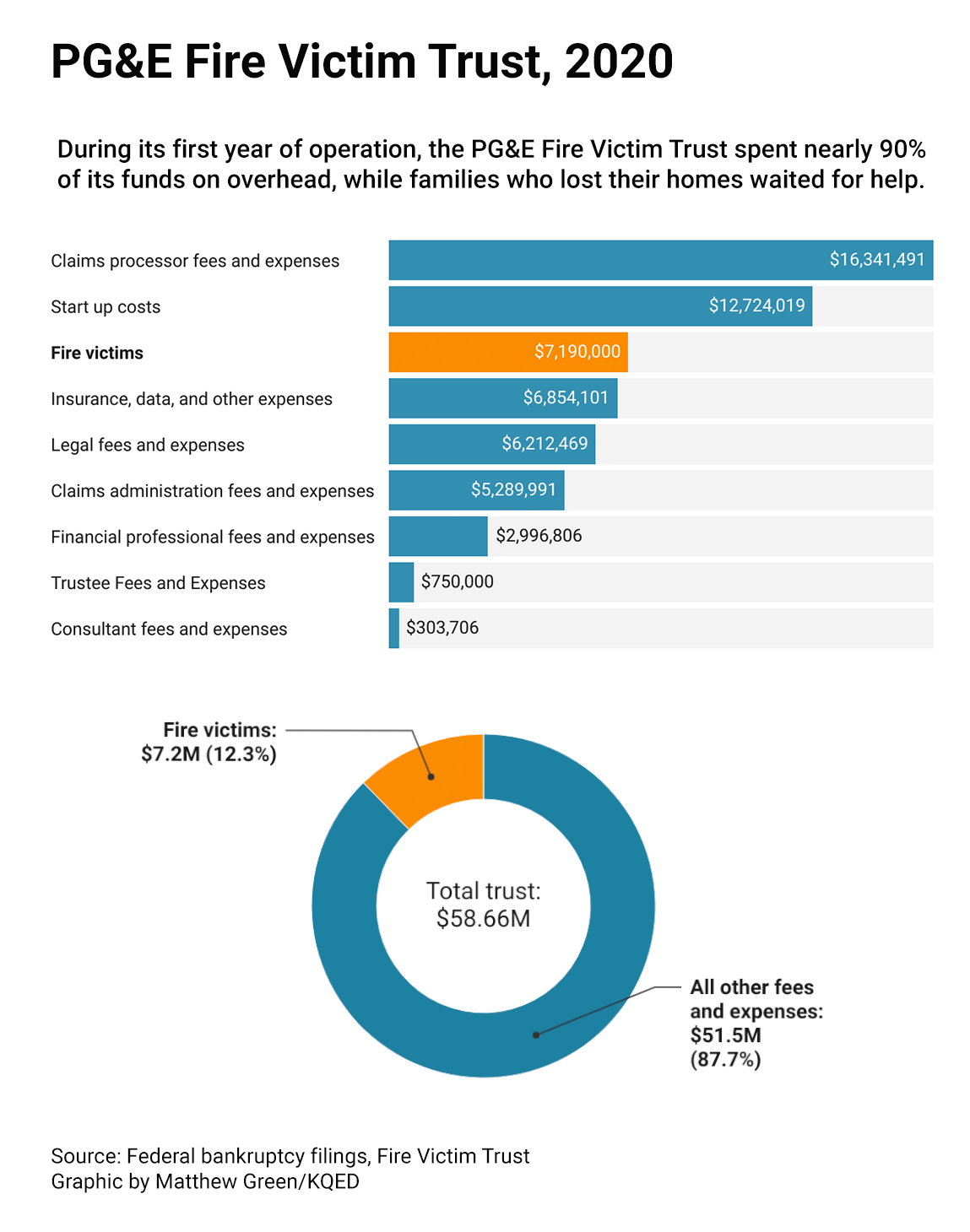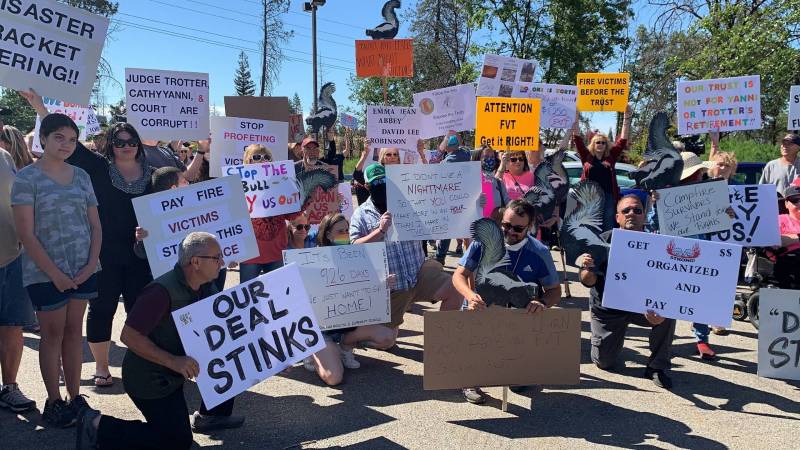A bipartisan group of state lawmakers has asked for California Attorney General Rob Bonta to probe the spending and administration of the PG&E Fire Victim Trust.
The request comes after a KQED investigation into overhead costs of the Trust, which was established as part of a December 2019 bankruptcy settlement between the utility and nearly 70,000 victims of fires caused by PG&E equipment.
The investigation found the Trust spent nearly 90% of outgoing funds on overhead last year, while the vast majority of fire victims waited for help.
"We urge you to use the full authority of your office to review the fund’s recent expenditures and the fund’s administrators," said the letter, which was signed by 11 state senators and assemblymembers who represent areas impacted by PG&E fires between 2015 and 2018.
 "We hear every week from residents who've been waiting two years for settlement payments that they are due. Their lives are on hold until they receive these dollars," said state Sen. Mike McGuire, D-Healdsburg, whose district includes parts of Sonoma County.
"We hear every week from residents who've been waiting two years for settlement payments that they are due. Their lives are on hold until they receive these dollars," said state Sen. Mike McGuire, D-Healdsburg, whose district includes parts of Sonoma County.
"It's unacceptable. It's egregious and it has to change, and it's why we're calling on the trustee to expedite payments to fire survivors in Northern California," he added.
State Assemblymember James Gallagher, a Republican who represents the fire-ravaged town of Paradise, first announced last week on KQED Forum that he and colleagues were preparing a letter calling for more transparency. KQED's investigation "raises a lot of questions and concerns that need answers," Gallagher said. Others who signed on include state Sen. Bill Dodd, D-Napa, Assemblymember Cecilia Aguiar-Curry, D-Winters, and state Sen. Jim Nielsen, R-Tehama, all of whom have constituents harmed by fires caused by PG&E’s equipment and are waiting for compensation.

